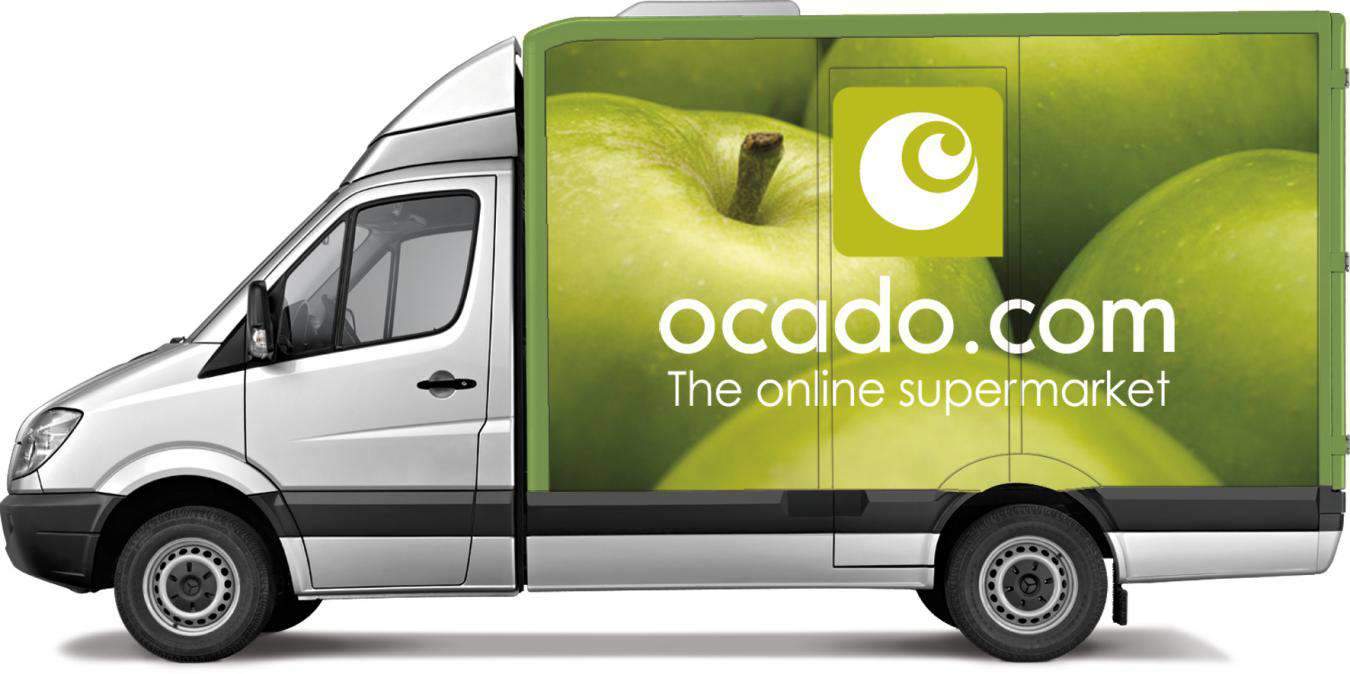UK online grocer Ocado is the newest entrant into the FTSE 100 Index after striking a deal with major American retailer Kroger - which becomes the latest company to use the British firm's warehouse automation technology that is changing the face of supermarket shopping

Ocado van
Britain’s online-only supermarket Ocado has been branded the “new star of grocery retail” as shares rocketed 44% in a single day following a deal marking its entry into the United States.
The Hertfordshire company has agreed to introduce its robotic warehousing technology to distribution centres owned by major American retailer Kroger.
It led to much excitement in the market, with investors rushing in to buy Ocado shares and driving the price up by 44% on Tuesday (29 May).
This was followed by the firm’s entrance into the FTSE 100 Index – which ranks the UK’s 100 biggest listed companies – for the first time in its 18-year history yesterday (30 May).
Andreas Olah, lead analyst in digital retail at data and analytics company GlobalData, believes Ocado is becoming a “game-changer” in the industry – with the huge share price rise showing confidence in its innovative technologies.
Here he tells us why it could be on the cusp of something special.

What’s the story behind Ocado deal with Kroger?
Since 2014, Ocado has been delivering groceries for Morrisons – one of its UK supermarket rivals – using its nationwide network of depots.
It has also supplied its automation technology to French mass retailer Groupe Casino and Canada’s second largest supermarket Sobeys.
However, the largest coup has been its entry to the US market through the recent Kroger deal, which also includes Kroger buying a 5% stake in Ocado for £183m ($242m), and equipping 20 new warehouses across the US with its technology over the next three years.

In addition, the agreement comes with monthly consultancy fees and charges for exclusive usage of Ocado’s technology in the US grocery sector.
Why is Ocado seen as a game-changer?
Ocado’s warehousing technology provides efficient automation for online grocery orders, including the latest robots that roam around its state-of-the-art warehouses that process 65,000 customer orders a week.
For example, its Andover warehouse actually looks like a vast metal grid of countless slots that the robotic arms drop products into – or pick them up from.
There are barely any staff members around since the robotic system is fully automated.

However, a few maintenance engineers are usually on standby to deal with any issues in case anything breaks down.
In addition to the robotic arms, small robotic vehicles roam around the warehouse floor, which feature autonomous movement capabilities and 4G connectivity.
This concept is seen as highly efficient, innovative and cost-efficient, and can minimise the need for staff such as pickers, drivers and warehouse supervisors.
That means, retailers that use such a highly automated approach can not only benefit from greater accuracy to ensure that customer orders are correct, but can also lower the risk of insider theft, strikes, labor shortages, and Sports Direct style scandals regarding poor working conditions.
Can supermarkets use Ocado to beat Amazon at its own game?
All major supermarkets have been struggling to make online grocery delivery profitable, and are very keen to implement a solution that processes fast-moving and perishable products as efficiently as possible.
As Amazon is rapidly expanding into grocery deliveries with Amazon Fresh, and has started to open up the first Amazon Go checkout-free store, major supermarkets are feeling the pressure to innovate their warehousing and delivery processes in order to be able to compete at least to some extent.

Since margins are low in this low-price and high-volume business, only the smartest and most innovative will survive in the long run.
It is also a major challenge to integrate online deliveries with existing processes of supplying stores, and efficiently manage the entire warehousing system with linkages to suppliers and logistics providers.
By partnering with Ocado, retailers can gain a competitive edge, especially if the agreement includes exclusive usage of its technology in a country or retail segment.
At the same time, any potential issues should not be underestimated, such as the complexity of aligning existing processes and systems with Ocado’s high-tech approach.
Also, retailers that use Ocado heavily rely on its capabilities to deliver on its promises.
Any technical problems, cyber-attacks or other downtimes at Ocado could have a major impact on these retailers’ business-critical operations.
Where else could Ocado expand?
It will be interesting to see which other grocery chains will eventually partner with Ocado, and which markets it may enter in the next few years.
There are lots of opportunities especially in China, Japan and across Asia in general, but also in Germany, Russia, Brazil and Australia.
Ocado could target one of the top three leading grocery chains in each country and offer them similar exclusivity deals as for Kroger.

However, it could also do deals without a premium for exclusivity in some cases, or set up its own operations in promising countries where local partners could then be brought on board in order to expand their online grocery business in a joint model.
In addition, Ocado could enter non-grocery segments, such as furniture or electrical retail, and secure deals with leading local and regional retailers in this space.
While it would certainly make sense to expand further, Ocado also needs to balance its efforts with continuous improvements to its technology and investments in research and development to avoid falling behind other competitors – especially Amazon, Alibaba and Walmart.


